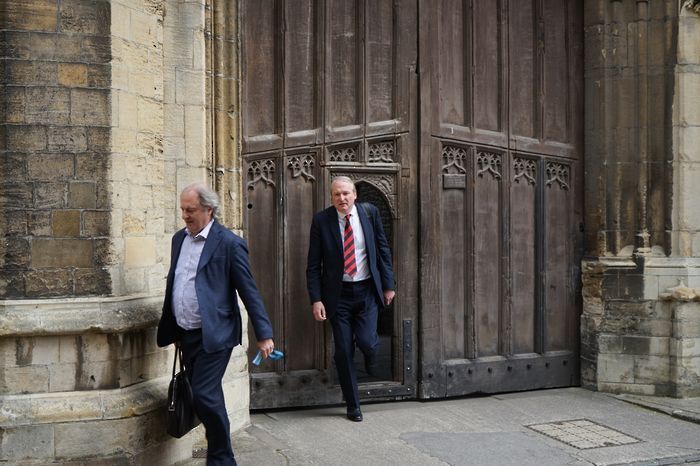Daisy Eyre criticises University Council for feeling ‘like a rubber-stamping body’
CUSU’s president described “bureaucratic niceties” which make committees “obstacles” to change in a recent blog post

CUSU President and University Council member Daisy Eyre has described the Council, Cambridge’s executive decision-making body, as seeming “very distant from the experiences of students”.
Describing a “feeling that decisions have been made long before they make it to the Council” in a blog post, Eyre criticised Cambridge’s decision-making process as undermining discussion, and going against the sense that the University should function as a “hugely democratic institution”.
Speaking to Varsity, she cited the report of the Environmental Sustainability Strategy Committee (ESSC) on Cambridge’s environmental impact as an example of how the Council functioned. As the ESSC had already considered the report “in detail”, University Council was unable come up with its own recommendations. Instead, they had the “very constrained power” of “whether or not to accept” the recommendations. Eyre said this made Council feel “like a rubber-stamping body”.
Eyre acknowledged that University committees are often perceived as “boring”, although she said that that they were “too important to ignore”.
She also criticised the gender and racial composition of committees, and has said that the “shockingly narrow” composition of the University Council “must diversify”.
She described herself as having felt “very much a young, fresh, girl” as a student representatives on committees, claiming that most of the members of committees are “old white men” who “often have a lot of power”. She said she had faced frequent interruptions, but has since “learnt to speak [her] mind.”
She said it was “not good enough” that the only non-white Council members were students, adding that it was “very worrying” that the “significant numbers” of non-white academics were “not represented”.
At present, University Councillor Umang Khandelwal and Graduate Union President Dr Darshana Joshi, both student repsentatives, are the only non-white members on the Council, which has a total of 25 members.
A University spokesperson declined to respond to Eyre’s comments, but said the CUSU president was entitled to express her opinions.
Eyre said that one problem with committees was the “unspoken necessity of speaking in a certain way”, with people who “speak with too much emotion” or “without using the right words” not being “paid as much heed”. In turn, Eyre alleged that this led to committees “skirt[ing] around the issue at hand”, making them “obstacles that keep discussions within certain bounds… that do not allow for much change.”
Remarking on recent University Council discussions over whether to divest Cambridge’s endowment from fossil fuel company holdings, Eyre said that her argument in favour of divestment were “mostly drowned-out by the weight of other council members and the University Administration”.
Eyre argued that “both Council and the [Divestment Working Group] report” skirted around the issue of full divestment, focusing on “smaller details” rather than “address[ing] the implications of not fully divesting”. University Council is set to decide soon on whether to commit to full divestment, after its presentation last month divided Council members.
Looking to the future, Eyre said she hoped that a proposed new CUSU-GU Report to Council, presented by Eyre and Joshi, will “bring student issues to the heart of the University” by forcing the University Council to talk about the experience of students and facilitating more of the discussion to be student-led, which Eyre hopes will “orient” Council “to a different set of concerns from its most normal operating mode”.
Eyre’s tenure as president will come to an end in July, when she will be replaced by Pembroke student Evie Aspinall.
 News / Colleges charge different rents for the same Castle Street accommodation2 March 2026
News / Colleges charge different rents for the same Castle Street accommodation2 March 2026 News / King’s hosts open iftar for Ramadan3 March 2026
News / King’s hosts open iftar for Ramadan3 March 2026 Theatre / Lunatics and leisure centres 4 March 2026
Theatre / Lunatics and leisure centres 4 March 2026 News / Angela Merkel among Cambridge honorary degree nominees27 February 2026
News / Angela Merkel among Cambridge honorary degree nominees27 February 2026 News / News in Brief: waterworks, wine woes, and workplace wins 1 March 2026
News / News in Brief: waterworks, wine woes, and workplace wins 1 March 2026








